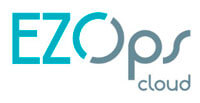In the fast-paced world of DevOps, efficiency and automation are paramount. Two essential tools that have become indispensable for DevOps professionals are Shell scripting and PowerShell. Both offer powerful features for managing cloud environments, automating tasks, and enhancing the productivity of DevOps teams. In this blog post, we’ll explore the key aspects of Shell and PowerShell, and how they can be leveraged in DevOps consulting to streamline workflows and achieve optimal results.
Understanding Shell Scripting in DevOps
Shell scripting is a cornerstone of Unix-based systems, providing a command-line interface for interacting with the operating system. For DevOps professionals, Shell scripts offer the ability to automate repetitive tasks, such as deploying applications, managing configurations, and monitoring system performance. With Shell scripting, DevOps teams can create custom scripts tailored to their specific needs, enabling greater control and flexibility over their cloud infrastructure. This level of automation not only reduces human error but also accelerates the deployment process, making it a vital component of DevOps practices.
PowerShell: Bridging the Gap for Windows Environments
PowerShell, developed by Microsoft, is a task automation and configuration management framework that consists of a command-line shell and an associated scripting language. Unlike traditional Shell, PowerShell is designed to work seamlessly with Windows environments, making it an essential tool for DevOps professionals working with Microsoft technologies. PowerShell’s ability to interact with various Windows components and its integration with cloud platforms like Azure make it a powerful asset for automating tasks, managing resources, and deploying applications in a DevOps pipeline. Its object-oriented nature and extensive library of cmdlets provide a robust framework for scripting and automation.
Enhancing Cloud Management with Shell and PowerShell
In the realm of cloud computing, Shell and PowerShell scripts play a crucial role in managing and automating cloud resources. Whether it’s AWS, Azure, or Google Cloud, these scripting languages enable DevOps teams to write scripts that can provision infrastructure, deploy applications, and scale resources efficiently. For instance, with PowerShell, DevOps professionals can use Azure PowerShell cmdlets to automate the management of Azure resources, while Shell scripts can be used to interact with AWS CLI for similar purposes. This cross-platform capability ensures that DevOps teams can maintain consistency and efficiency across different cloud environments.
Streamlining DevOps Consulting with Automation
DevOps consulting often involves assessing an organization’s current processes and implementing strategies to improve efficiency and scalability. By leveraging Shell and PowerShell, consultants can create reusable scripts that automate common tasks, such as setting up continuous integration/continuous deployment (CI/CD) pipelines, configuring servers, and managing databases. This not only speeds up the implementation process but also ensures that best practices are followed consistently. Automation through scripting reduces the risk of configuration drift and provides a reliable way to manage complex environments, making it a key focus area in DevOps consulting.
Future Trends and Best Practices
As the DevOps landscape continues to evolve, the importance of Shell and PowerShell in automating and managing infrastructure will only grow. DevOps professionals and consultants should stay abreast of the latest advancements in these scripting languages, such as new cmdlets, modules, and integration capabilities. Additionally, adopting best practices for script development, such as version control, modularization, and thorough testing, will ensure that scripts are maintainable and scalable. By continuously refining their scripting skills and staying updated with industry trends, DevOps teams can harness the full potential of Shell and PowerShell to drive innovation and efficiency in their workflows.
In conclusion, Shell and PowerShell are invaluable tools in the DevOps arsenal, offering extensive capabilities for automation, cloud management, and process improvement. Whether you’re a DevOps professional looking to streamline your operations or a consultant aiming to implement best practices, mastering these scripting languages is essential for achieving success in the dynamic world of DevOps.
